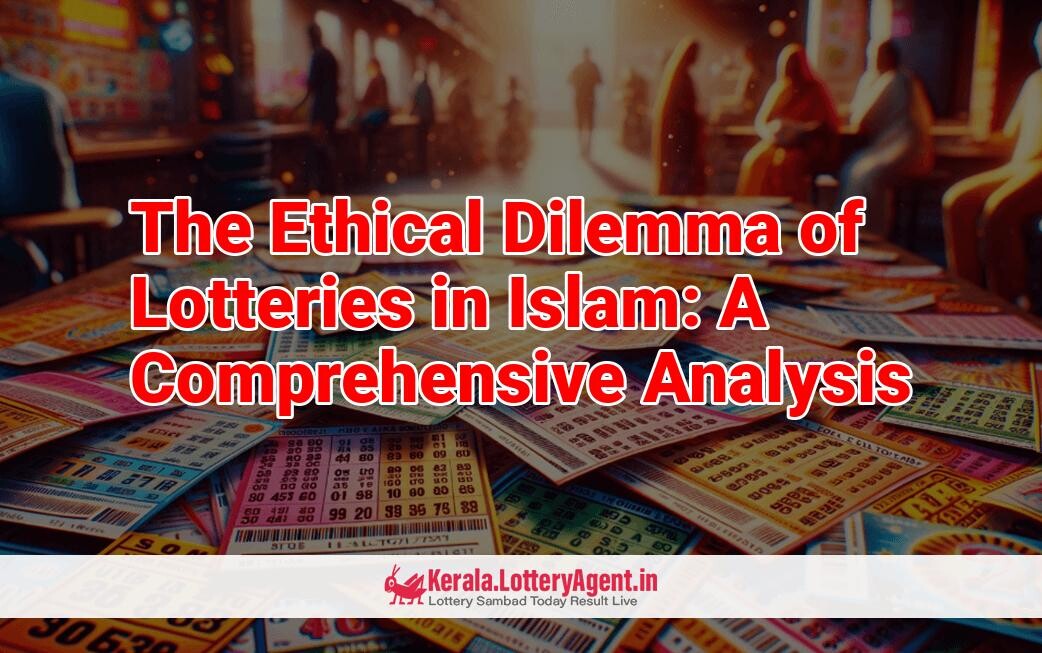
The concept of the lottery is one that stokes fervent debate among Muslims, with opinions deeply divided over its permissibility in Islam. This discord arises from the intrinsically polarizing nature of lotteries, which some Muslims perceive as outright gambling and contrary to the teachings of the Quran, while others see lotteries as a source of social benefit, outweighing any potential harm. This article delves into the differing Islamic viewpoints on the matter and aims to provide clarity on whether participating in lotteries aligns with Islamic tenets.
At the crux of the debate is whether or not lotteries constitute gambling. For those who view it as such, the commandments of Allah are clear: gambling is forbidden—as it may lead to addiction and financial ruin. However, many contend that lotteries do not equate to traditional forms of gambling due to their lower risk of addiction, arguing that they should be considered permissible. Additionally, some Muslims see the lottery as a form of charity, given that a portion of lottery proceeds are allocated to educational and philanthropic endeavors.
The Quran, while not explicitly addressing lotteries, provides guidance that can influence one’s stance on the issue. The holy book acknowledges the potential benefits of gambling but warns that its inherent risks surpass any advantages. This ambiguity fuels differing interpretations among Muslims, with some arguing that lotteries are impermissible under Islamic law, while others justify their participation on the basis that it supports charitable causes. As such, whether it is acceptable for a Muslim to play the lottery ultimately comes down to personal belief and conviction.
When examining the nuances of this issue, it becomes evident that not all lottery participation scenarios are cut from the same cloth. For instance, receiving a complimentary lottery ticket could be considered halal by some since no direct purchase or financial risk is involved. This situation can arise when businesses hold promotional lotteries, such as gas stations offering raffle entries with a fuel purchase. However, given the potential for these tickets to be indirectly financed through goods or services transactions, the notion of ‘risk’ is called into question, and opinions on permissibility diverge.
On the other hand, free raffles held at social or charity events, offering no-strings-attached tickets to attendees, may be unanimously viewed as halal. In these scenarios, participation does not involve staking money or material goods, aligning with Islamic proscriptions against gambling.
The nuances extend to the retail arena, where Muslim store owners in countries like the United States are confronted with the dilemma of selling lottery tickets. Islamic scholars, drawing from Quranic teachings, deem this practice impermissible, classifying it as aiding in sin. Notwithstanding this, some store owners continue the sale of lottery tickets, holding a different interpretation of what constitutes gambling.
The question of whether lottery winnings comply with Islamic practices also arises. If a Muslim plays the lottery and wins, they might be inclined to invest in ventures that are halal or donate a portion of the funds to charity, given Islam’s emphasis on almsgiving. These actions are seen as ways to ‘purify’ the wealth obtained through the lottery. However, whether Muslims should even participate in lotteries or accept such winnings remains a subject of personal conviction, often weighed against the belief that the source of the money is associated with gambling, which is haram.
Extending the discussion to community and welfare, it’s worth pondering whether Muslim organizations should apply for and accept lottery grants. In countries such as the United Kingdom, where a fixed percentage of lottery revenue supports community projects, there’s an argument to be made for the benefits of such grants. While the funds originate from lotteries, the end use for charitable purposes absolves Muslim communities from culpability, as they are not directly engaged in gambling.
Ultimately, the Islamic perspective on lotteries is multifaceted and lacks a definitive verdict. Everyday scenarios, such as whether selling, working in a store that sells lottery tickets, or having a family member engaged in the business of lottery sale, present diverse challenges that require personal judgment and religious consideration.
This comprehensive analysis underscores the dynamic and complex nature of interpreting Islamic law and the personal choices it necessitates when confronted with the moral conundrum of lotteries. As with many aspects of faith and ethics, the individual Muslim must navigate these waters, ideally informed by both religious guidance and the societal implications of their decisions.











